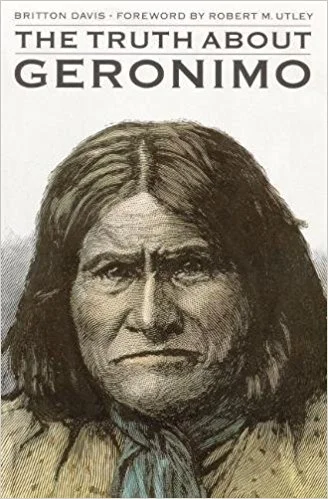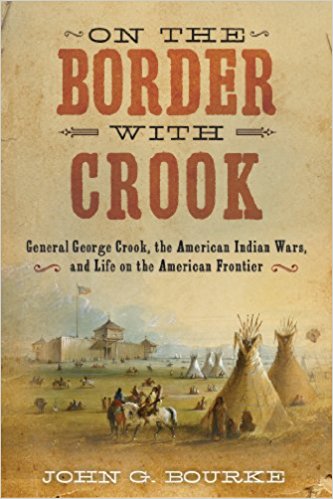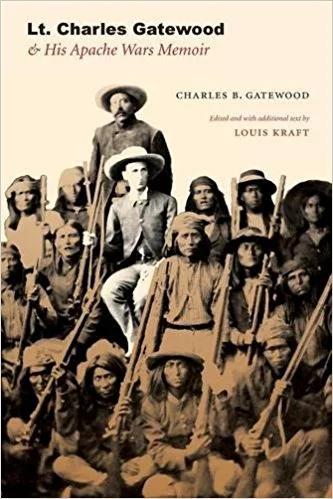The Truth About Geronimo
The Truth About Geronimo by Britton Davis
Davis' book reads like a good adventure novel: fast-paced and entertaining but full of keen observations and documentary evidence relating to life on the San Carlos Apache Reservation, the circumstances of the last Chiricahua outbreak in 1886 and Geronimo's definitive surrender to Gen. Nelson Miles, in which Davis' colleague, Lt. Charles Gatewood, played a key role. The injustice done the latter by the lack of official and public recognition of his critical efforts was what drove Davis to write this book.
Davis gives a very fast paced blow-by-blow description of the 1882 battle of Big Dry Wash, in which he participated. This was just off of Chevelon Creek, on the Mogollon Rim, where I've hiked and backpacked. He then was assigned to assist Emmett Crawford administrating the San Carlos Reservation and training Apache scouts for the army, while Gatewood, assisted by Hamilton Roach, did the same at Fort Apache (White Mountain). Both reservations had been placed under military control by Gen. Crook in 1882 to try and counter the nefarious influence of civilian agents reporting to the Interior Department, and their allies in the surrounding Anglo and Hispanic communities.
Crook and his Apache scout troops tracked down and surprised a large group of Chiricahua who had fled the reservation and crossed the border in 1883, in the Sierra Madre. He brought back most of the women, children and old folks with him, while the remainder, the real fighting force, promised to come in two months later. After three months they still hadn't showed up, and the citizenry of the border states and their newspapers were clamoring for Crook's hide. Crook then sent Davis south with a troop of scouts to find them and get them to honor their word. This makes fascinating reading, both for descriptions of Geronimo & Co., and for a great example of the challenges the army faced keeping civilians from disrupting the agreements they'd made with the Apaches. Specifically, shortly after Geronimo crossed the border into Arizona to (very belatedly) honor his agreement, Davis was faced with two Arizona lawmen in the San Simon Valley who had a warrant for the arrest of the Apache and his band. This would have resulted in a disaster for Crook's policy of fighting hostile Apaches, by making (and honoring) peace accords with those that were willing to return and live on the reservation. Davis convinced an initially furious Geronimo to work with him and he and the Apaches slipped away in the night for San Carlos with their herd of stolen Mexican livestock and left the lawmen flat-footed and far behind.
Of key importance is Davis' account of his 1885 confrontation with the Chiricahua after a tiswin drunk on what today is the White Mountain Reservation that, through a series of unfortunate mis-steps, led to their flight into Mexico, Crook's resignation and Miles cloaking himself in the glory of Geronimo's final surrender.
What I found most interesting in Davis' book are his descriptions of the individual players on the Apache side and of Apache culture in general. As in Utley's biography (reviewed by me recently), Geronimo comes off not as a heroic Native resistance fighter, but as a brave and cunning raider with a drinking problem, who was generally untrustworthy. He was ultimately forced into surrender by unrelenting pressure from both sides of the border, but especially from the US Army and its Apache scouts, due to the cross-border agreement signed by the US and Mexico in 1882.


